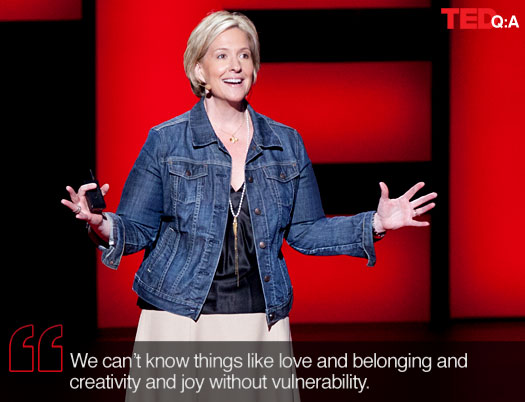How often do you listen to that little voice inside your head?
You know the one – that little narrator that talks to you all day long?
You can probably actually hear it right now if you stop and listen for a second…
It tells you that you’re being too ridiculous, or dramatic, or picky, or too sensitive, or not sensitive enough… the voice that has an opinion on absolutely everything?
That voice can be great at times, it can even be a life saver!
But it can also be toxic.
When you live inside your head too much, you start to believe your own bullsh*t.
You really are your own worst critic. And the danger is, sometimes you can start to honestly believe what you are thinking is true.
Sometimes you don’t realise just how much you are living inside your head.
I know this because I’ve been there…
Many years ago I convinced myself at a young age that because my Dad left my Mum that meant that any partner I would ever have would end up leaving me… Seriously…
Sounds silly right? But somehow my mind made it real.
I would actually end up jeopardising my relationships because I didn’t want them to leave me – so I left them first.
How stupid is that?!
But in my mind it was the truth.
It wasn’t until I ventured outside of my head and spoke to someone about it, actually opened up and sought another opinion, that I realised what I had been doing to myself for so many years.
I realised just how powerful my thoughts were.
So now I must ask you a question – “how positive is your relationship with the voice inside your head?”
Because we all have one – good or bad.
But what you need to pay attention to is how influential your inner voice is to you.
How does it influence your decisions?

Are you able to tell the difference between what’s real and what’s simply your inner-critic’s opinion?
When life gets you down, are you able to turn that negative voice inside your head into something positive?
Having lived with breathing problems and panic attacks over the last few years, if there’s one thing I’ve learnt – it’s that I have to deal with any frustration, anxiety, or bad feelings as they come, so they don’t start to fester and eat away at me slowly from the inside.
The longer I worry or dwell on any bad thoughts, the worse they seem to get.
So for a long time I wasn’t able to control the tone of the voice inside my head and I let it knock me around a lot.
“You can’t do this… they don’t like you… why would you even try you’re just going to fail…?”
Thoughts like this would constantly drift around inside my head until I truly started to believe them.
That’s the dangerous part… you start to believe your thoughts are real and not just mere thoughts, they become something they’re not – facts.
And once I started believing these negative ‘facts’ I would often go quiet (on the outside).
I wouldn’t share what was going on inside my mind with anyone because I genuinely thought that no one would want to hear it.
But please don’t let your mind do this to you.
I promise you, you can take back control of your thoughts and turn that voice inside your head into a positive influence.
It just takes a bit of practice, patience and self-control.

Any time I notice that the voice in my head is playing tricks on me again… I do the following:
Get it out
One of the reasons I write these blogs is to help others, but it turns out it also helps me by writing things down and getting thoughts out of my head.
Writing really is therapeutic.
If I’m really angry with someone but don’t know if I want to confront them about it, I’ll write them a letter with everything I want to say and then later decide if I still want to say it. At least then it is outside of my head. I’m the kind of person who lives in my head a lot, and often find that once I write down how I’m feeling, or what I’m thinking, it is never as bad as I thought.
Find something that makes you happy
I absolutely love music and you can often tell what kind of mood I’m in by what I’m listening to.
I’ve created a ‘happy’ playlist, and an ‘inspiring’ playlist to help pick me up when I’m not feeling the best.
I also love animals, so just being around them can instantly make me smile.
Replace any bad thoughts in your head with positive ones
I have to actually boss my brain sometimes – tell myself that I am in control of what goes on inside my head.
Don’t even approach bad thoughts.
Don’t try to rationalise them.
Don’t even think about them.
And definitely don’t dwell on them.
Any of the above is a passive reaction to the negative thought, hence making you feel the negative feelings that follow, which doesn’t help at all. So replace the bad thought on the spot.
Surround yourself with good people
Spending time with good friends or family who cheer me up is one of my favourite things to do when I’m upset.
I’m the kind of person that will always be there whenever someone needs to vent, and having people that will do the same for me in my life is truly one of the things I am most thankful for.
Focus on what you want in your life
What do you really want to achieve in your life?
I want to be successful.
I want the world to be better because I was here.
I want to make a difference in people’s lives.
When I think about what really drives me and what I’ve been put on this earth to do, I get really motivated and all the other stuff seems to become irrelevant.
At the end of the day, everyone has stuff to deal with.
We all have times when life gets difficult and we don’t understand why.
But when this happens, just breathe and remember it’s not the end of the world.
Your thoughts are not in control of you – you control them.
‘You are not your thoughts – you are the awareness behind them.’
Just remember that everything in this life is temporary (both the good and the bad) so the bad times won’t last forever and who knows what amazing opportunities lie ahead for you in your life.
If you liked this article, please share it with others.
If you would like to learn more about the online workshops we offer for reducing stress, improving relationships and learning to communicate with others in a way that people respond positively to, then click here.
Source: https://dotscommunication.com/2016/06/07/dangers-living-inside-head/
















